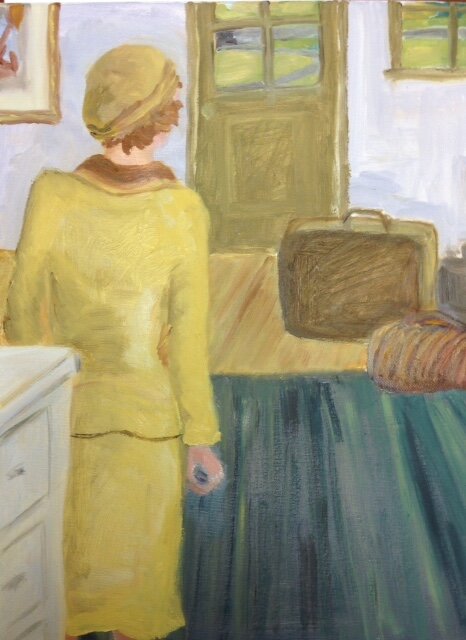
Mapping Eden: Discussion questions
How did you respond to the issue of loss while reading the book?
We see things through Julia’s eyes—and also our own. What does she see and experience that the adults around her do not recognize? What does the reader see that she doesn’t?
In contrast to many immigrant stories we read, Julia’s family is not part of a community, but “the only foreigners on our Chicago street.” (p. 7) How do you think the family’s situation affects the course of events? How is a sense of dislocation signaled early in the book?
At the very beginning of the book Julia says of her mother, “She left. She vanished. She didn’t say goodbye. I didn’t want to be reminded.” (p. 1) Yet she also tries “to get her, and the long-ago past, in focus.” (p. 7) What might be behind Julia ambivalence and confusion to both want to remember and not want to remember? How is this illustrated in the novel?
Maps serve as a vehicle for Julia’s quest to understand. Why does she need to study maps to learn about her own experience? How do the geographic metaphors help convey the meaning of the story?
What happened to Julia’s mother, she writes, seemed like the kind of secret “you were punished for telling.” (p. 3) How is a code of silence enforced in Julia’s family?
Julia is excluded from information about what is happening to her mother and from mourning rituals. For whose benefit do you think these decisions are made? How do they affect Julia? How does she understand, and not understand, what is going on?
Julia’s father teaches her many things, except what she really needs to know—what is happening to her mother (and, of course, herself). What might be some of the reasons the father speaks and acts the way he does? Are there aspects of her father you see that Julia doesn’t? What impact does his behavior have on Julia?
“Take her back,” Julia thinks when her mother, ill and weakened, turns away from her. (p. 64) How did you react to Julia’s anger and frustration (here and elsewhere)? How does her father respond?
How do Julia and Robbie respond differently to the unfolding events? What is behind their different responses? We might expect siblings to support each other in difficult times. Do you think their relationship is fairly typical, or an aberration?
At the end of the book Julia reflects, “Dora had come to take care of us, to set us straight. I should have been able to stop it, but I couldn’t.” (p. 153) How does Julia react to Dora’s efforts to organize the household and win her over? Did Julia have any power to change things?
How do other characters—teachers, children, neighbors, her parents’ friends—relate to Julia and the events?
What role do dolls play in Julia’s efforts to cope? Why are they so important to her?
How are childhood memories different from the memories of what we experience as adults? Do some of Julia’s recollections of her mother seem idealized? Does it matter? Are “accurate” memories essential to understanding? To what extent would you say we retrieve, or make, our memories?
When she moves to a new neighborhood and starts a new school, Julia says, “I had lost the picture of what I was, where I came from.” (p. 145) How does she experience the past being erased? How does the loss of her mother affect Julia as she grows up? What role does a mother play in a woman’s sense of identity?
Though the time isn’t specified, references indicate the novel is set in the mid-twentieth century. Do you think the ways illness and death—and children--are dealt with in the family would be different today?
